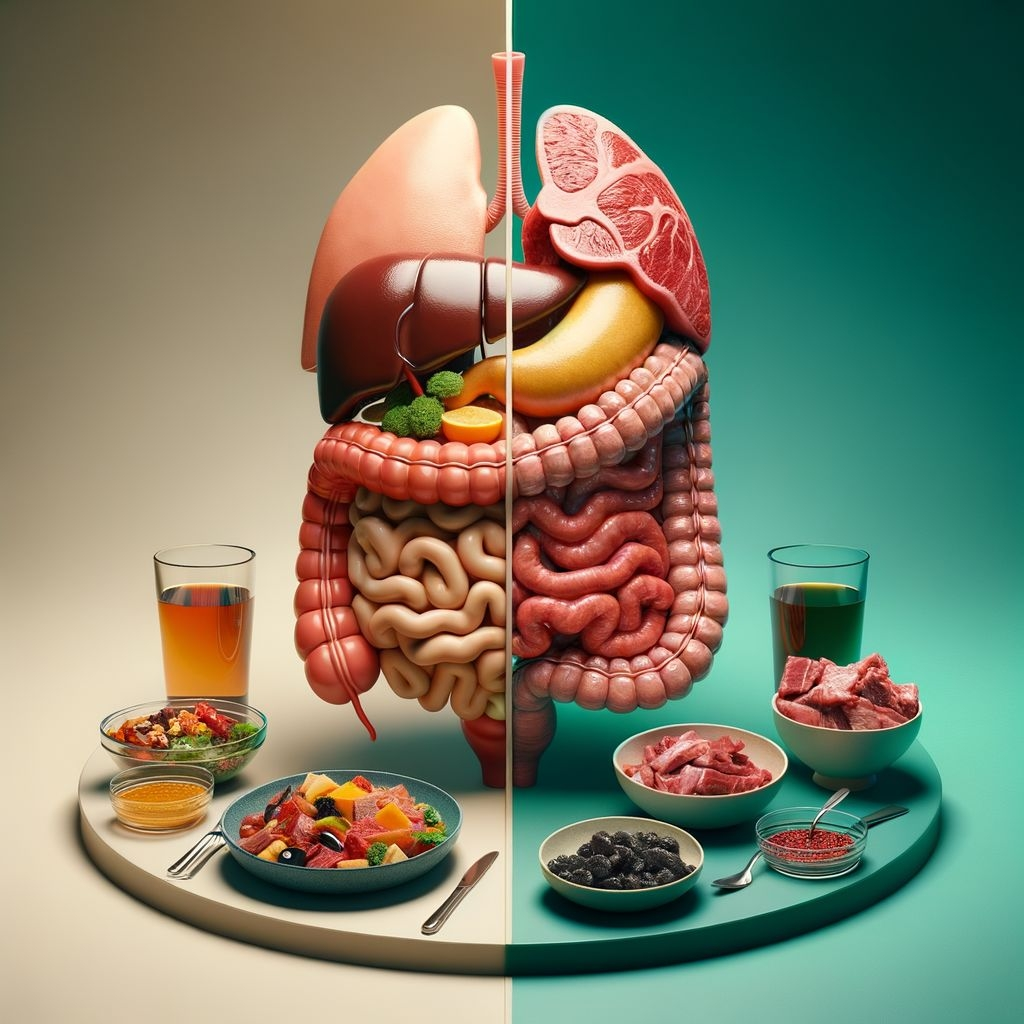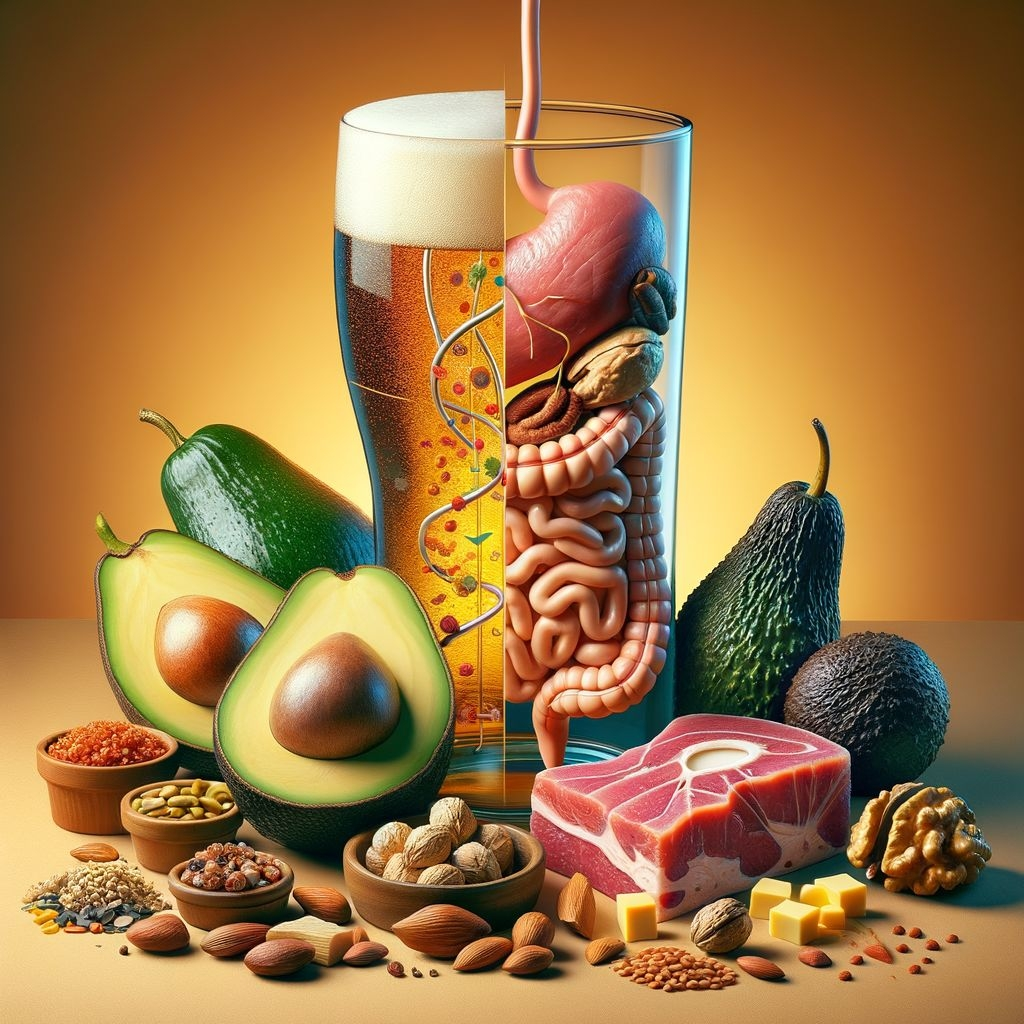Side Effects of The Carnivore Diet: Nausea, Digestive System, and Long-Term Effects of Eating More Meat
As the popularity of various diets continues to rise, the carnivore diet has gained attention for its unique approach to nutrition. However, along with its benefits, this diet also comes with its share of side effects. One of the common issues faced by individuals on the carnivore diet is nausea. In this article, we will delve into the details of the carnivore diet and explore why nausea occurs as a side effect, along with insights from renowned expert Robert Kiltz.
What is the Carnivore Diet and Why Does it Cause Nausea?
Explanation of the Carnivore Diet
The carnivore diet is a dietary approach that primarily focuses on consuming animal products such as meat, fish, and poultry while excluding all plant-based foods. Advocates of this diet believe that it can lead to various health benefits, including weight loss and improved energy levels.
Impact of the Carnivore Diet on the Digestive System
Due to the elimination of high-fiber plant foods, the carnivore diet can significantly impact the digestive system. The sudden shift to a meat-heavy diet can alter the gut microbiome and enzyme production, affecting the overall digestive process.

Why Nausea is a Common Side Effect
Nausea often occurs when starting the carnivore diet due to the body’s adjustment to a high-fat intake and reduced carb consumption. The drastic change in dietary composition can lead to digestive issues, including nausea, as the body transitions to using fat as its primary energy source.
Understanding Short-Term Side Effects of the Carnivore Diet
Relationship Between Nausea and Diarrhea
In some cases, individuals on the carnivore diet may experience a combination of nausea and diarrhea. This gastrointestinal distress is often attributed to the body’s struggle to adapt to the sudden increase in meat consumption and the lack of fiber to promote proper digestion.

Dealing with Constipation on the Carnivore Diet
Conversely, constipation can also be a side effect of the carnivore diet, especially when proper hydration and electrolyte balance are not maintained. The absence of fiber-rich foods can lead to sluggish bowel movements, resulting in constipation.
Electrolyte Imbalance and its Effects
Electrolyte imbalance is another common issue associated with the carnivore diet, contributing to symptoms like nausea, muscle cramps, and fatigue. Replenishing essential electrolytes such as potassium and magnesium is crucial to prevent these adverse effects on the body.
Long-Term Effects of the Carnivore Diet on Health
How Fat Intake Plays a Role
The high-fat nature of the carnivore diet can have long-term implications on health, particularly concerning cardiovascular health. Excessive intake of saturated fats from animal sources may lead to elevated cholesterol levels and increased risk of heart disease if not balanced properly.

Exploring the Importance of Enzymes in the Digestive Process
Enzymes play a vital role in breaking down foods for absorption and digestion. The lack of plant-based foods in the carnivore diet can impact enzyme production, potentially compromising the body’s ability to efficiently process nutrients from animal products.
Potential Impacts on the Cardiovascular System
Over time, following a carnivore diet without proper monitoring and adjustment can pose risks to the cardiovascular system. Elevated cholesterol levels, inflammation, and other factors associated with the diet may increase the likelihood of heart-related issues.
Tips for Minimizing Nausea and Other Side Effects on the Carnivore Diet
Strategies for Proper Hydration and Electrolyte Balance
To combat nausea and electrolyte imbalance on the carnivore diet, it is essential to stay hydrated and replenish electrolytes. Consuming potassium-rich foods like avocados and magnesium supplements can help maintain proper electrolyte balance.
Adjusting Fat and Protein Intake to Alleviate Nausea
Individuals experiencing nausea on the carnivore diet may benefit from adjusting their fat and protein intake. Moderating fat consumption and ensuring adequate protein sources can help alleviate digestive discomfort and reduce the likelihood of nausea.
Understanding the Role of Carbs and Fiber in the Diet
While the carnivore diet emphasizes low carbohydrate intake, incorporating fibrous foods like leafy greens and seeds can support digestive health and alleviate gastrointestinal issues. Balancing the diet with essential nutrients is key to minimizing side effects.
How to Start the Carnivore Diet Safely
Gradual Introduction of Foods to Avoid Sudden Digestive Upsets
Transitioning to the carnivore diet should be done gradually to prevent sudden digestive upsets and minimize side effects like nausea. Slowly introducing different types of animal products and monitoring how the body responds can help ease the transition.
Importance of Monitoring Hydration Levels
Proper hydration is crucial on the carnivore diet to prevent dehydration and electrolyte imbalances that can exacerbate nausea and other side effects. Monitoring water intake and ensuring adequate hydration levels are maintained is vital for overall well-being.
Consulting with a Healthcare Professional Before Embarking on the Diet
Prior to starting the carnivore diet or making significant dietary changes, it is advisable to consult with a healthcare professional or nutritionist. They can provide personalized advice, monitor health indicators, and guide individuals on how to approach the carnivore diet safely.
Nausea on Carnivore Diet Side Effects Frequently Asked Questions:
What are the common side effects of the carnivore diet?
The carnivore diet may lead to side effects such as increased fat intake, bad breath, and heart palpitations.
How can the increased fat intake on a carnivore diet impact the body?
Consuming more fat on a carnivore diet may cause nausea due to the sudden change in dietary habits.
Can starting a carnivore diet lead to dehydration?
Yes, starting a carnivore diet can increase the risk of dehydration, so it’s important to drink plenty of water.
Is it common to experience cravings when transitioning to a carnivore diet?
Cravings for certain foods like sugar may occur when starting a carnivore diet, but they usually subside over time.
How does the carnivore diet affect bile production in the body?
Eating more meat on a carnivore diet can stimulate bile production, which aids in digestion.
What should I do if I experience heart palpitations on a carnivore diet?
If you notice heart palpitations while on a carnivore diet, it’s advisable to seek medical advice to rule out any underlying issues.
Can the carnivore diet cause long-term side effects on the digestive tract?
Some individuals may experience issues with their digestive tract in the long term if they do not eat enough variety or fiber while following the carnivore diet.
What is the carnivore diet and how might it lead to nausea?
The carnivore diet is a restrictive regimen that involves consuming only animal products, such as meat, fish, eggs, and dairy. It can lead to nausea due to a lack of dietary fiber, the bodys adjustment to high-fat intake, potential nutrient deficiencies, or from the consumption of excessive protein.
Can self-experimentation with the carnivore diet cause health issues?
Yes, self-experimentation with any restrictive diet like the carnivore diet can potentially lead to health issues. These may include nutritional deficiencies, gastrointestinal problems like nausea or constipation, increased risk for heart disease due to high saturated fat intake, and kidney stress from processing large amounts of protein.
How should one transition into a carnivore diet to minimize side effects such as nausea?
To minimize side effects like nausea when transitioning into a carnivore diet, its recommended to gradually increase meat intake while decreasing other foods instead of making an abrupt change. It’s also important to stay hydrated and consider including a variety of animal-based foods to ensure adequate nutrient intake.
What are some ways to alleviate nausea on the carnivore diet?
Alleviating nausea on the carnivore diet may involve adjusting portion sizes; choosing leaner cuts of meat initially; ensuring proper hydration; eating smaller, more frequent meals; incorporating organ meats for better nutrient balance; and possibly including electrolyte supplements if needed.
Should individuals with pre-existing health conditions try the carnivore diet without medical supervision?
No, individuals with pre-existing health conditions should not try the carnivore diet without medical supervision as it could exacerbate their condition. They should always consult healthcare professionals before making significant dietary changes as these diets can impact medication effectiveness and overall health stability.




